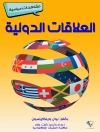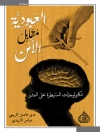Christoph Seidler’s book discusses how bilateral donors perform in fighting corruption. In order to do so, a rationalist perspective is taken. The author argues that donors perform well in fighting corruption when they cooperate – in forming an international regime. Based on three documents of OECD/DAC, possible principles, rules and norms of such a regime are elaborated. By examining policy papers of three bilateral donors (United States Agency for International Development, UK Department for International Development, Swedish International Development Cooperation Agency), the author seeks to understand if donors’ policy papers indeed converge on a normative level. In a second step, the implementation level in the form of aid allocation patterns is examined. The analysis shows a larger degree of coherence on the normative level but only few commonalities on the implementation level as aid allocation patterns of the donors vary considerably. The book concludes that a possible regime is not (yet) in place, even though principles, rules and norms exist. Thus, the bilateral donors’ performance in fighting corruption is still suboptimal.
เกี่ยวกับผู้แต่ง
Christoph Seidler studied International Relations in Dresden, Lausanne, Berlin and Oslo. He received his Master’s degree in fall 2007. Currently, he works as a journalist in Berlin.












